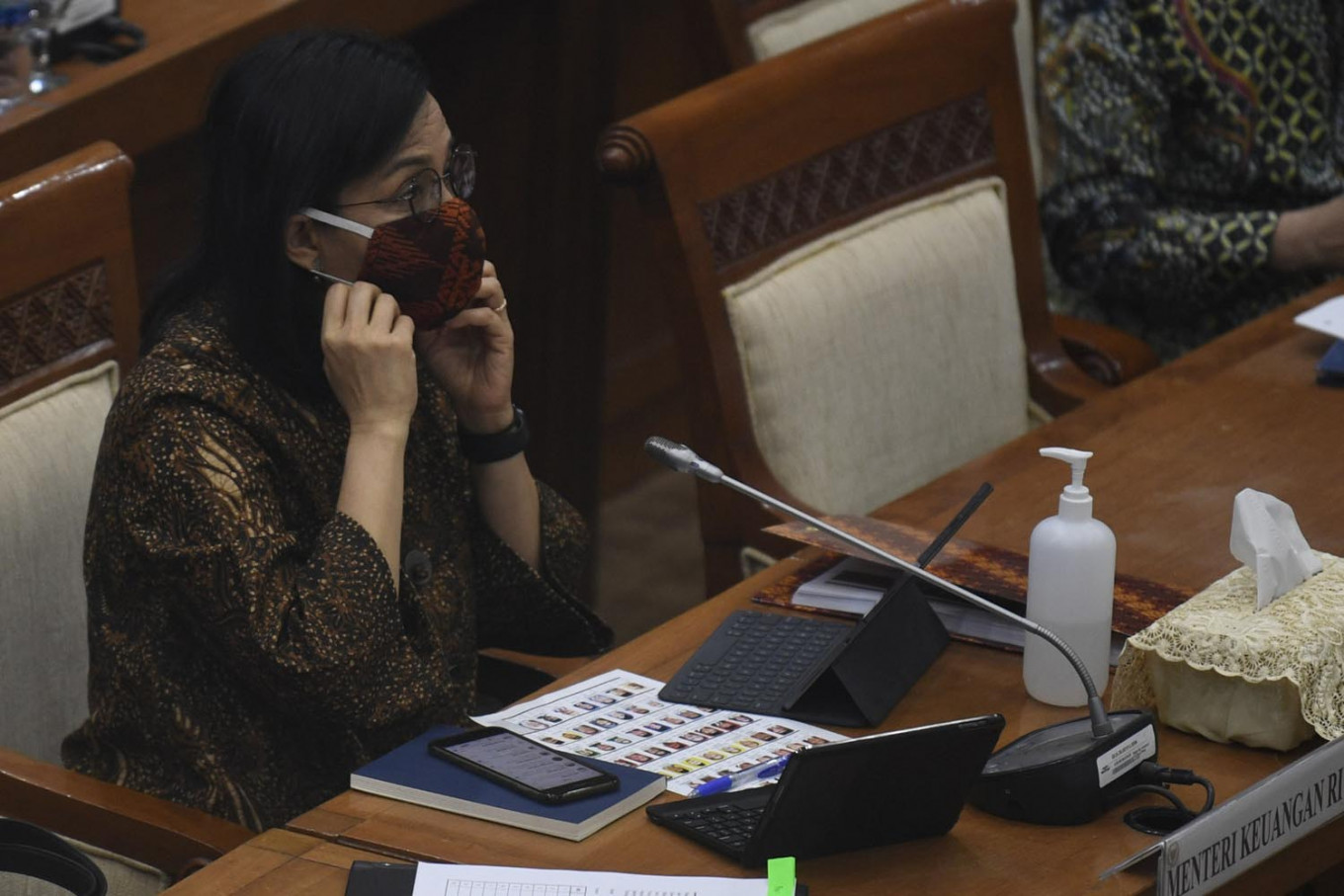Popular Reads
Top Results
Can't find what you're looking for?
View all search resultsPopular Reads
Top Results
Can't find what you're looking for?
View all search resultsGovt looks to spend $85b in Q4 to get out of recession
Change text size
Gift Premium Articles
to Anyone
I
ndonesia is looking to spend around Rp 1.2 quadrillion (US$85.21 billion) in state budget and regional administration funds to support the economic recovery in the fourth quarter this year as the coronavirus pandemic rages on.
The government allocated Rp 770 trillion from the state budget and Rp 505 trillion from regional administration budgets for spending in the fourth quarter, with actual disbursement depending on how quickly ministries and regional administrations spend, Finance Minister Sri Mulyani Indrawati said on Thursday.
“We are hoping that the momentum of economic recovery can be maintained in the fourth quarter with these funds,” she told the House of Representatives Commission XI on financial affairs.
“As we have seen in the third quarter, government spending is crucial to revive and reverse the [direction of the] economy.”
Government expenditure jumped 9.76 percent in the third quarter to recoup from a second quarter contraction of 6.9 percent, driven by higher social and capital spending in efforts to fight the impacts of the pandemic as the economy entered into recession. At the same time, household spending, investment and exports and imports contracted.
Indonesia plunged into recession for the first time since the 1998 Asian financial crisis as the economy shrank 3.49 percent in the third quarter, after recording a 5.32 percent contraction in the second quarter. The economy is expected to contract by 0.6 percent to 1.7 percent this year, according to the government’s estimate.
The government has spent 55 percent of the Rp 695.2 trillion stimulus earmarked to revive an economy reeling from the pandemic, Sri Mulyani said, with the biggest spending on social protection programs and aid for micro, small and medium enterprises.
Although spending remained well below pre-pandemic levels, improvements were seen in grocery and retail stores, recreational places and parks, she said.
“We are hoping that the relaxation of large-scale social restrictions [PSBB] will spur economic activity without risking a second wave of a COVID-19 [outbreak],” she told lawmakers.
The state expenditure rose 15.5 percent in September compared to the same period last year to Rp 1.84 quadrillion, 67.2 percent of this year’s target, Finance Ministry data show. Meanwhile, the government collected only Rp 1.15 quadrillion in state revenue, marking a decrease of 13.7 percent compared to a year ago.
The budget deficit hit 4.16 percent of gross domestic product (GDP) as of September, still within the government’s forecast of 6.34 percent of GDP, as the pandemic sapped tax revenue, spurred government spending and necessitated government borrowing.
Speaking during the same meeting, Bank Indonesia (BI) Governor Perry Warjiyo revealed that several indicators had shown improvements, adding that government spending would continue to play a significant role to speed up economic recovery.
“We are seeing improvements in several economic indicators and government spending,” he told lawmakers. “We expect that the economy will return to positive growth in the fourth quarter.”
Indonesia’s retail sales continued to fall in September, though at a slower pace compared to the previous month, a BI survey showed on Wednesday.
Retail sales in Indonesia fell 8.7 percent year-on-year in September, down from the 9.2 percent contraction recorded in the previous month, according to the survey.
The central bank said improvements were seen in the sales of food, beverage and tobacco, as well as fuel and clothes, according to 700 retailers across 10 major cities in the country including the capital Jakarta.
The survey projected that sales in October would fall 10 percent from a year ago before improving in the next three months because of the year-end holiday. However, sales may drop again in the next six months.
Bank Central Asia (BCA) economist David Sumual said household spending might further improve in the October-December period because of the year-end holiday, which usually prompts consumers to boost spending on tourism services and other goods, adding the sharp rebound in the rupiah exchange rate since the US election could further spur consumption.
“The economy may come out of the economic recession in the fourth quarter should the government and regional administrations maximize their budget spending,” he told The Jakarta Post via phone interview.










